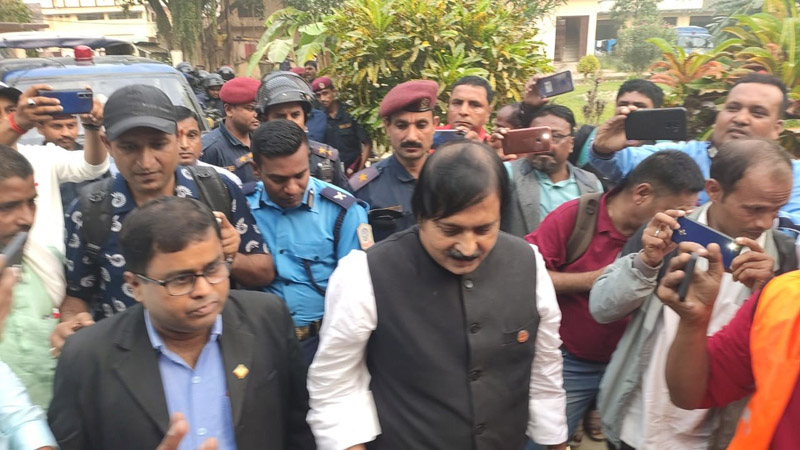Law to protect victims, witnesses need of hour
Kathmandu, November 13
Reports of murder accused Mohammad Aftab Alam’s men using threat, coercion and intimidation to make victims retract their statements highlight the need for a comprehensive law to protect the rights of victims and witnesses.
Alam faces charges of throwing 19 people, including Rautahat residents Oshi Akhtar and Trilok Pratap Singh, who were injured in bomb blast alive into a nearby brick kiln in Rautahat’s Rajpur Farhadwa on the eve of 2008 Constituent Assembly elections.
Yesterday, Gaurishankar Chamar, who said he was injured in the same blast and was treated in India after the incident, told media outlets that he was kidnapped by Alam’s men and forced to retract his statement.
Oshi Akhtar’s wife, Amana Khatun, recently was forced to file an application in Rautahat District Court saying that her husband had gone to a foreign country for employment before the blast and he had not returned home since then.
Talking to THT, a senior advocate, who specialises in criminal law, rued lack of adequate laws to protect crime victims and witnesses, forcing them to often retract their statements or refuse to depose against criminals.
“In the USA, witnesses are often moved to other states and their and their family members’ names are changed to protect them from criminals who could target them for deposing against them,” the lawyer said.
He added that during Maoist conflict a Scandinavian country had taken a Nepali citizen, who was a witness to a murder committed by Maoist rebels. The country who offered the Nepali witness its passport said it would give him a changed name to protect him from those who could pose threat to him and if Nepali authorities wanted to cross examine him they could do so through video conference.
Lawyers said similar measures needed to be adopted in Nepal to protect victims and witnesses.
There is no mechanism in Nepal to provide security to witnesses and people don’t believe that the government will be able to provide them security.
Chairperson of Constitutional Lawyers’ Forum Raju Prasad Chapagai said victims, who were also witnesses, had constitutional right to get justice but due to lack of adequate legal mechanisms and guidelines they had not been able to enjoy their constitutional rights. “Often victims and witnesses of serious crimes, including organised crime and rape, are threatened and intimidated. There are real and perceived threats against them and the state must provide security to these victims,” he added.
A comprehensive law to protect victims and witnesses is yet to be enacted.
Chapagai said the government should have an ad hoc mechanism to provide security to victims such as Amana Khatun and Gaurishankar till it adopted comprehensive measures to deal with the security threat that victims and witnesses faced across the country. “If victims of crime face security threat, they should be relocated and their privacy should be protected. If they need financial help, the government must be ready to provide it,” he argued.
Spokesperson for the Office of the Attorney General Sanjeeb Raj Regmi said there was need to enact a comprehensive law to protect victims and witnesses. “At present we have Crime Victim Protection Act, but that appears to deal only with victims and not witnesses. The support measures that this act talks of also indicate such measures are only for temporary period, but a victim may face threat for long time,” he added.
He said the Government of Nepal needed to talk to Indian authorities to protect Gaurishankar Chamar, as he is an Indian citizen. Rautahat Superintendent of Police Bhupendra Khatri said it was a sensitive case and his office was discussing plans to provide security to victims and witnesses of the murder case. He said police were concerned about the security of Amana Khatun and Gaurishankar Chamar and would do the needful.






